Speakers
Keynote Speakers
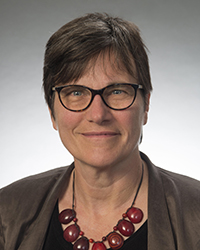
Paula M. Krebs, Ph.D. is the executive director of the Modern Language Association (MLA), whose 23,000 members are scholars and faculty members in languages, literature, writing, and cultural studies. In her role as executive director, Paula advocates nationally for humanities education and the value of the humanities, working with faculty members, employers, and public humanities agencies. She has written on higher education and humanities issues for the Chronicle of Higher Education, Inside Higher Ed, the Washington Post, Slate, and other publications. Paula also serves on the board of the National Humanities Alliance. Krebs has long worked on issues of race, class, and access in higher education. She founded Teaching at Teaching-Intensive Institutions, an annual workshop for doctoral students who want to learn about careers at community colleges and other teaching-focused institutions, and the MLA’s program on Reading-Writing Pedagogy at Access-Oriented Institutions. She is a Victorianist by training and inclination, with a doctoral degree in nineteenth-century British literature and culture from Indiana University and a bachelor of arts degree in English from La Salle University.
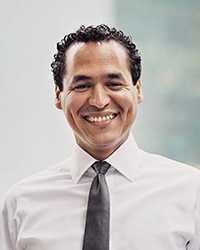
Roosevelt Montás, Ph.D. is a senior lecturer in American Studies and English at Columbia University. He previously served as director of the Center for the Core Curriculum at Columbia College, a position he held for 10 years. Roosevelt specializes in Antebellum American literature and culture, with a particular interest in American national identity. His dissertation, Rethinking America: Abolitionism and the Antebellum Transformation of the Discourse of National Identity, won Columbia University’s 2004 Bancroft Award. In 2000, he received the Presidential Award for Outstanding Teaching by a Graduate Student. He teaches moral and political philosophy in the Columbia Core Curriculum as well as seminars in American literature and culture in the American Studies Program. Each summer, he teaches a course in political theory and citizenship to high school students through Columbia’s Freedom and Citizenship program. He speaks and writes on the history, meaning, and future of liberal education and is writing a book for Princeton University Press about his experiences as a student and teacher. Roosevelt studied comparative literature and earned a doctorate in English at Columbia University.
Panelists
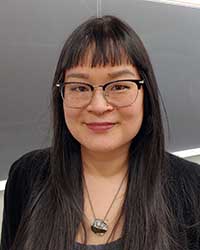
Natasha Christensen, Ph.D. is an associate professor of sociology in MCC’s Department of Anthropology, History, Political Science, and Sociology. Her research and teaching focuses on race, class, gender, and sexuality studies with a specialty in intersectional feminism. She teaches Introduction to Sociology, Sociology of Race and Ethnicity, and Sociology of Gender and Sexuality courses at MCC with the goal of inspiring students to engage in social change and activism. Natasha also teaches intersectional feminism workshops through 540WMain, Inc., a non-profit Rochester community-based specialty school and event space that creates and curates low cost, high impact educational content and programs rooted in antiracism, arts/culture and humanities, and wellness. She earned a doctorate in sociology from University of California, Los Angeles and a bachelor of arts degree in sociology from Baylor University.
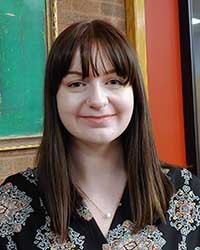
Nicole Doughty credits studying a broad array of liberal arts disciplines for inspiring her as an MCC student leader and activist. Prior to MCC, she studied sociology through Syracuse University Project Advance and was editor of her high school newspaper, which instilled in her a passion for social science and a deep investigative curiosity. During her first year at MCC, she became president of Politicos, the political science club on campus, and a member of the Phi Theta Kappa Honor Society—MCC’s Alpha Theta Iota Chapter. Nicole's studies include anthropology, psychology, political science, Spanish, and art. As a member of MCC’s Debate Team, Nicole crafted arguments against the proposition that higher education's value is purely financial, positing that humanities education is essential to a healthy civil society. After MCC, she plans to pursue a bachelor's degree in sociology.
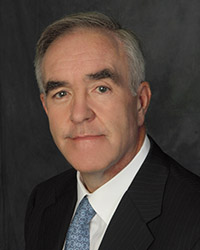
Sergio Esteban is the chairman and principal of LaBella Associates, P.C., a Rochester firm providing expertise in architectural design, engineering, environmental consulting and planning services. LaBella Associates has been recognized consistently among Rochester Top 100 Fastest Growing Companies, and the list of ENR Top 500 largest engineering companies in the USA. His career as an engineer started in Spain, planning and designing urban arterial systems for several cities. Sergio has been involved in the design and management of many projects that have contributed to the betterment of the Rochester community, including the Midtown Redevelopment Project, Brown’s Race Area Improvements and MCC’s Downtown Campus. He also serves as chair of the MCC Foundation Board of Directors. He earned a master’s degree in civil engineering and transportation from the Polytechnic University of Madrid in Spain, and furthered his education at Syracuse University and the University of Rochester.

Rodmon King, Ph.D. is the chief diversity and inclusion officer at SUNY Oswego. He has dedicated his career to working with communities and empowering individuals to become agents of social change. For almost two decades, he has facilitated workshops on diversity, activism, full participation, structural inequality, microaggressions, implicit bias, and unearned privilege. He received his doctorate and master of arts degrees in philosophy from the University of Rochester. Rodman is a member of the Western New York Higher Education Recruitment Consortium Advisory Board and the National Association of Diversity Officers in Higher Education. He served on the steering committee for the Consortium for Faculty Diversity and as interim chair of the American Philosophical Association Committee on the Status of Black Philosophers.
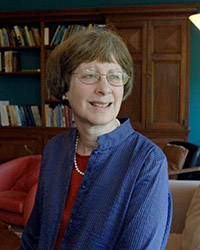
Joan Shelley Rubin, Ph.D. is the Ani and Mark Gabrellian Director of the Humanities Center and the Dexter Perkins Professor in History at the University of Rochester. She is the author, among other works, of The Making of Middlebrow Culture (1992), Songs of Ourselves: The Uses of Poetry in America (2007), and Cultural Considerations: Essays on Readers, Writers, and Musicians in Postwar America (2013). A Guggenheim Fellow, she is co-editor of The Enduring Book: Print Culture in Postwar America (2009), volume 5 of A History of the Book in America. Her current research concerns print and the popularization of classical music in the twentieth-century United States. She received a bachelor of arts degree in American history and literature from Harvard University and doctorate in American studies from Yale University.
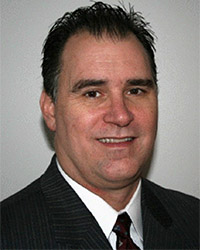
Andrew Rusnak is the executive director for the Community College Humanities Association where he leads a staff of professors who are dedicated to humanities education in community colleges. He is also an associate professor of English at the Community College of Baltimore County, Essex, where he developed a contextualized composition approach that is now subsidized by the Mellon Foundation. He teaches “STEM-Focused Composition,” technical writing, and creative nonfiction while engaging in research on the relationship between the humanities, natural sciences, and technology. His career includes positions as a communications director, editor, journalist, technical writer, manufacturing engineer, quality engineer, and technical trainer. He earned three master’s degrees: a master’s in liberal arts and the history of ideas from The Johns Hopkins University, a master’s in modern studies from Loyola University, and a master’s in writing from The Johns Hopkins University. He also holds a bachelor of science degree in English from Towson University.

